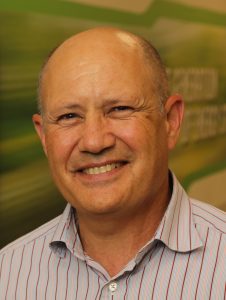Grand Prize in Chemistry to Prof. Gideon Grader
Technion's Prof. Gideon Grader received the prestigious Scientific Grand Prize in Chemistry & Hydrogen from the Charles Defforey Foundation – Institute of France. The prize was awarded on June 21, as a research grant for the development of innovative green hydrogen technology
Professor Gideon Grader of the Wolfson Department of Chemical Engineering received recently the Grand Prix Scientifique in Chemistry and Hydrogen from the Charles Defforey Foundation – Institute of France. The prestigious prize was awarded on June 21, 2023, as a research grant for developing innovative green hydrogen technology.
Institut de France (Institute of France) is a non-profit learned society that unites the five French academies. Founded in 1795 and placed under the protection of the President of the French Republic, the Institut de France encourages research, supports creativity, and provides funding for many humanitarian projects in the form of prizes, bursaries, and grants.
Prof. Grader completed his bachelor’s degree at the University of California, Berkeley, and his Ph.D. at the California Institute of Technology (Caltech). He joined the Technion’s Wolfson Faculty of Chemical Engineering in 1990 following a post-doctoral fellowship at the AT&T Bell Laboratories. He is currently a member of the faculty and the founding director of the Grand Technion Energy Program.
Over the past decade, Prof. Grader developed the E-TAC process of splitting water into hydrogen and oxygen, whereby the production of the two gases is decoupled in time, along with Professor Avner Rothschild, Dr. Hen Dotan, and Dr. Avigail Landman. Based on this innovative technology, green hydrogen company H2Pro was founded in 2019 and currently employs around 100 people. The company has raised over $100 million from venture capital funds, including Bill Gates’ BEV fund, TEMASEK, and Horizon Ventures, and from several large strategic partners including steel and ammonia producers, Arcellor Mittal and Yara, respectively. H2Pro was recently selected by BloombergNEF as one of the most promising companies for solving the climate change crisis.
The existing E-TAC method uses several consecutive steps, during which hydrogen and oxygen are produced on stationary electrodes at different times in a batch process. This is achieved by circulating electrolyte solutions at different temperatures through the electrodes. The main idea for which Prof. Grader won the prize is the transformation of the E-TAC idea from a batch into a continuous process. This goal is being achieved by developing unique electrodes that can move continuously between the separated sites where the hydrogen and oxygen are produced simultaneously, while the solution remains stationary. This development will simplify process control, improve stability, and enable long-term operation at a low cost. Such a continuous system will also enable easier scale up to industrial level.





